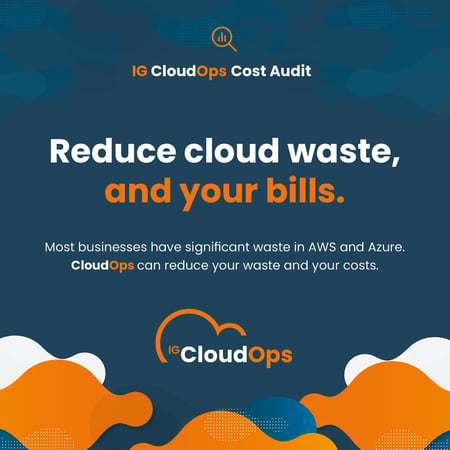
As your cloud platform evolves, the choice between individual contractors and a dedicated team of Azure experts, ready to perform the Microsoft Azure professional...
Your infrastructure costs in the Azure cloud can make or break your department's budget. As an ISV with infrastructure scaling on demand budgeting and analysing your Azure costs is even more important. It can be the difference between making or losing money.
Efficient Azure cost analysis can help you identify areas of improvement, optimise spending, and ultimately save on your Azure bills. In this blog post, we'll explore practical steps you can take to ensure cost-effectiveness in your Azure environment.

Before delving into a detailed Azure cost analysis, it's essential to stabilise your Azure environment. Unchecked resources, over-provisioned instances, and underutilised services can contribute to unnecessary costs. Assess your current infrastructure, identify idle resources, and streamline your setup for optimal efficiency.
Azure provides various cost-saving plans, such as Reserved Instances and Azure Hybrid Benefit. Review your existing commitments and explore opportunities to optimise savings plans. For example, Reserved Instances allow you to commit to a one- or three-year term for significant cost savings compared to pay-as-you-go pricing.
Auto Scaling is a powerful tool that allows your infrastructure to adapt dynamically to changing workloads. By configuring auto-scaling policies based on demand, you can ensure that you're only using resources when needed, reducing costs during periods of lower activity.
Implement robust monitoring tools to keep track of your resource utilisation. Regularly analyse the data to identify patterns and trends. This information is invaluable for making informed decisions about scaling resources up or down based on actual demand.
Azure resource tagging is an often overlooked but effective practice. By tagging resources with relevant information such as departments, projects, or cost centres, you can gain granular insights into resource costs. This enables better allocation and chargeback mechanisms, ensuring accountability for resource usage.
Data storage costs can accumulate quickly. Evaluate your storage requirements and choose appropriate storage classes for different types of data. Implement data lifecycle policies to automatically move or delete data based on its age and importance, optimising storage costs.
Azure services are continually evolving, and so are your business requirements. Regularly review your resource configurations to align with the latest best practices and take advantage of new cost-saving features. This ensures that your environment remains efficient and cost-effective over time.
In conclusion, while these practical steps can significantly contribute to Azure cost analysis and optimisation, partnering with an Azure consultancy business equipped with cloud management software can elevate your cost-saving efforts. A dedicated Azure partner can conduct regular cost audits, leveraging their expertise and cutting-edge tools to identify further opportunities for optimisation.
At IG CloudOps we have worked with hundreds of Azure deployments for over a decade. We have built our CloudOps cloud management platform to help our customers get the best from their Azure infrastructure deployments from cost and performance to security and monitoring with CloudOps and our team you make your cloud spend work for the long term.
Efficient Azure cost analysis, coupled with a strategic partnership, is the key to unlocking the full potential of your cloud operations.
To find out more get in touch and speak to a member of our Azure team today.
Or to find out more about CloudOps book a test drive.
Reduce AWS spend: AWS cost optimization is a long-term process, not a one-off
Stop your AWS costs rising with AWS management services
What should my managed AWS service include?
NoOps: CloudOps delivers IT Operational Excellence for DevOps teams
AWS Cloud Service Provider: How to Choose the Right One for Your Business

As your cloud platform evolves, the choice between individual contractors and a dedicated team of Azure experts, ready to perform the Microsoft Azure professional...

Azure DevOps is a comprehensive solution for continuous integration, delivery, and deployment that simplifies the software development process. While Azure DevOps offers...